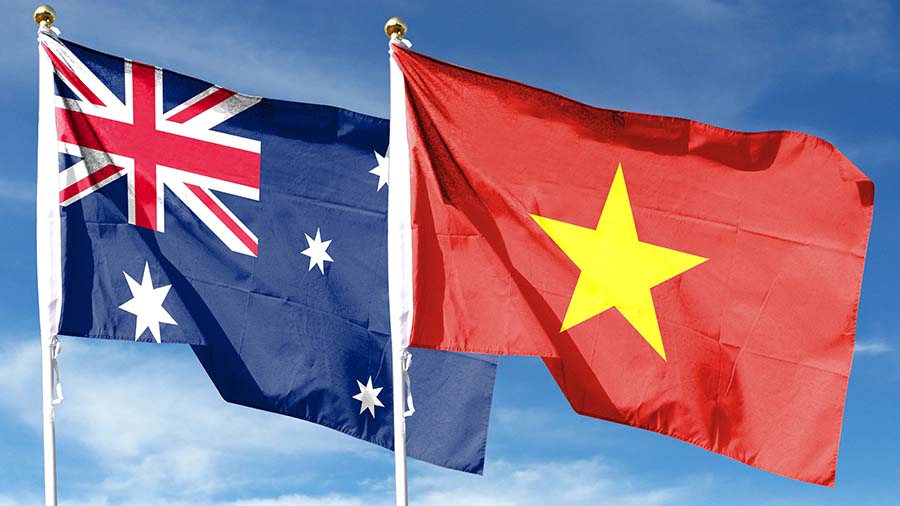Vietnam Issues Guiding Regulations on Trade Remedies in RCEP: Circular 7
Vietnam’s Ministry of Industry and Trade issued Circular 7 on guiding the implementation of trade remedies in the Regional Comprehensive Partnership Agreement (RCEP). Vietnam Briefing details what are trade remedies and how Circular 7 will tackle trade remedy measures for businesses using the RCEP.
Vietnam’s Ministry of Industry and Trade (MoIT) issued Circular 07/2022/TT-BCT (Circular 7) on the implementation of trade remedies in the Regional Comprehensive Partnership Agreement (RCEP). Circular 7 went into effect on May 8.
What are trade remedies?
As per the USTR, trade remedies are actions taken in response to subsidies such as countervailing duties, antidumping, and import surges such as safeguards.
The WTO further defines these as follows:
- Countervailing duties: Subsidies by governments that unfairly allow local compares to export at a lower price;
- Antidumping measures: Goods that are ‘dumped’ when companies export them at lower prices than their home market; and
- Safeguards: This allows a country to suspend imports temporarily to help local industries by giving them time to adjust to increased foreign competition in national markets.
While Vietnam is expected to gain from the RCEP, it also faces difficulties due to exports being subject to trade remedies, trade deficits, and other technical barriers. Vietnam has around 93 trade remedy issues that affect industries such as steel, fiber, wood, and so on from RCEP members. Vietnam itself is also investigating around 23 trade remedy issues in industries like metals, fibers, and so on.
Circular 7 highlights
To deal with this, MoIT’s Circular 7 will help in providing clarification and ease difficulties for businesses using RCEP for import-export activities. Trade agreements are complex documents; regulations on trade remedies in the RCEP are detailed in Chapter 7 which contains technical issues on calculations, disclosures, anti-dumping measures, and so on.
As per Circular 7, Vietnam’s MoIT will:
- Notify the investigated party in writing of an anti-dumping investigation at least 7 days before the government agency makes a decision;
- Notify the investigated party in writing of an anti-subsidy investigation at least 20 days before a decision is made to apply countervailing measures. If the investigated party requires, the MoIT will provide a non-confidential copy of the investigation file; and
- MoIT will provide all written documents with facts including a draft of the final decision at least 10 days before the final decision is issued. The concerned party is entitled to give input and provide comments defending their cause as per Decree 10/2018/ND-CP. The MoIT can then take these comments into consideration when issuing the final decision.
Trade liberalization positive, but trade remedies pose challenges
While Vietnam benefits from open trade and has developed its economy by participating in free trade agreements, trade remedy measures used by governments to block market access for unfair pricing has hurt competition and open trade.
The WTO has a system to stop abuse, but these investigations can be lengthy and if proved can significantly hurt an exporter’s revenue and future business. Therefore, foreign investors that export should be aware and study documents within the relevant free trade agreement to avoid creating suspicions or any ground for trade remedy actions.
In the past we have also seen several investigations by the US on Vietnamese timber and other products though these have been resolved. But any threat of tariffs being imposed can hurt exporters including foreign businesses that export their products and have operations in different countries.
Circular 7 will help businesses understand trade remedy provisions and allow businesses to be aware of investigations with a lead time to better prepare.
The MoIT has noted that in recent years, trade remedy cases against Vietnamese exported products has increased leading to reduced competition. To this end, the government agency is working on an early warning system for exporters that are at risk of being subject to trade remedy lawsuits in various markets.
The RCEP is expected to boost Vietnam’s exports, particularly for textile and garments, wood and paper, and pharmaceutical products as well as SMEs. While the RCEP appears modest compared to the Comprehensive and Progressive Agreement for Trans-Pacific Partnership (CPTPP) or European Union Vietnam Free Trade Agreement (EVFTA), Vietnam is expected to benefit and experience the highest increase in exports compared to its regional peers.
About Us
Vietnam Briefing is produced by Dezan Shira & Associates. The firm assists foreign investors throughout Asia from offices across the world, including in Hanoi, Ho Chi Minh City, and Da Nang. Readers may write to vietnam@dezshira.com for more support on doing business in Vietnam.
We also maintain offices or have alliance partners assisting foreign investors in Indonesia, India, Singapore, The Philippines, Malaysia, Thailand, Italy, Germany, and the United States, in addition to practices in Bangladesh and Russia.
- Previous Article Vietnam’s Infrastructure, Public Service Improve, but Anti-Corruption Efforts, Transparency Need Focus: PAPI 2021
- Next Article Tax, Accounting, and Audit in Vietnam 2022 – New Publication from Dezan Shira & Associates































